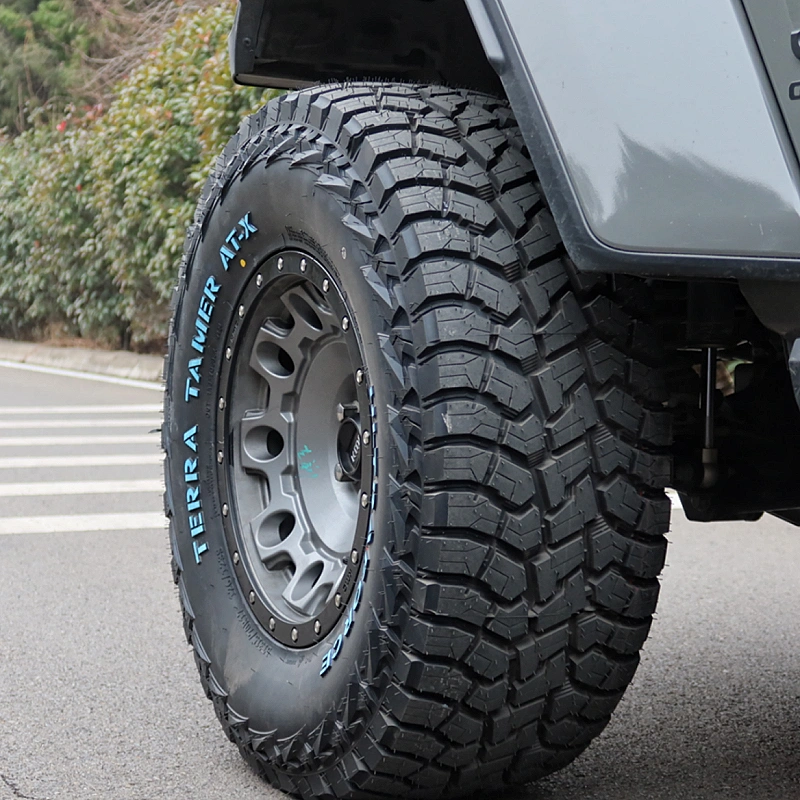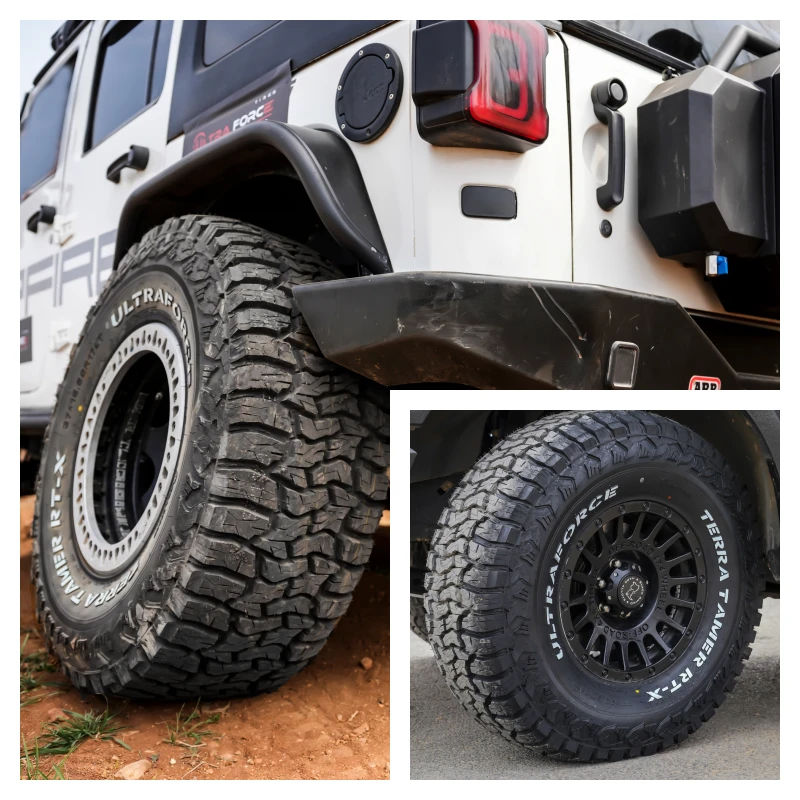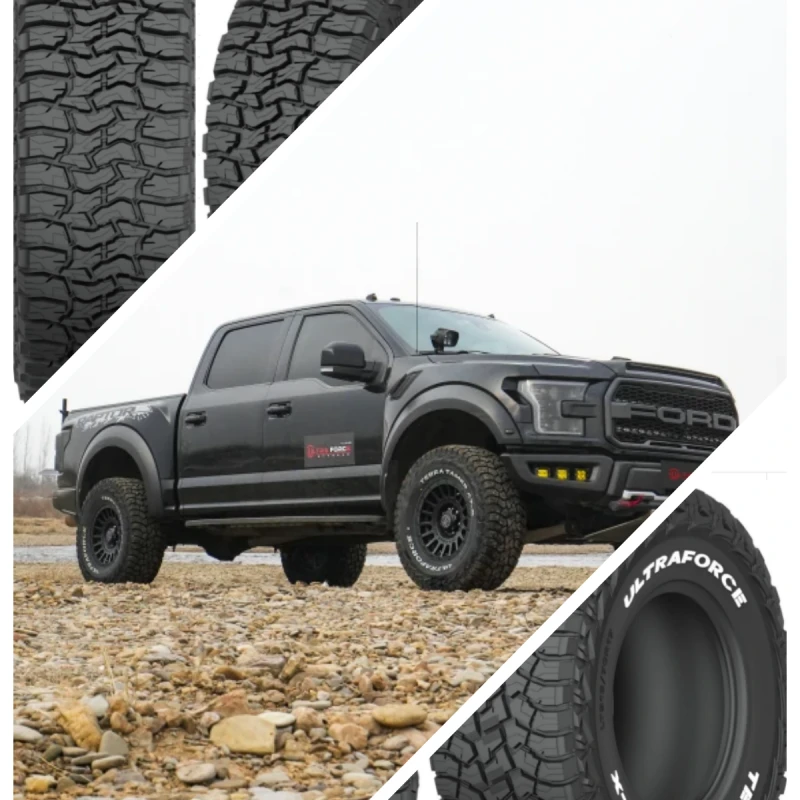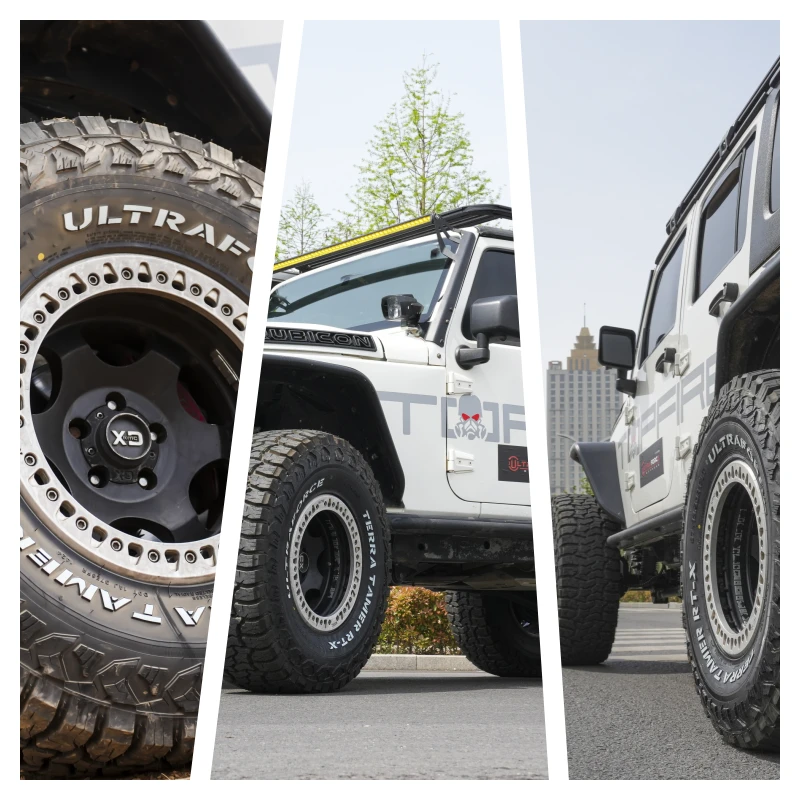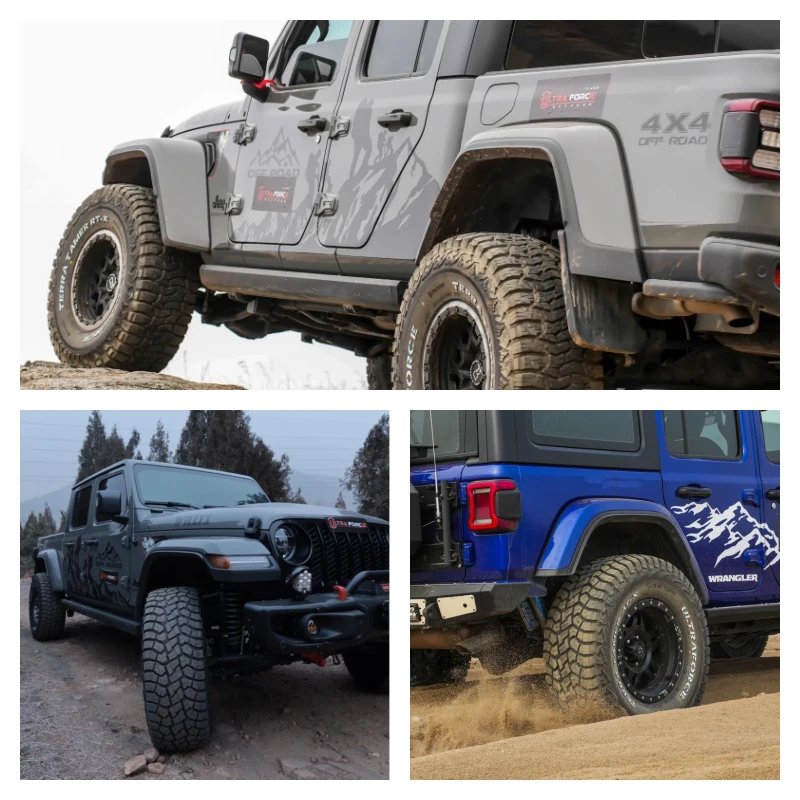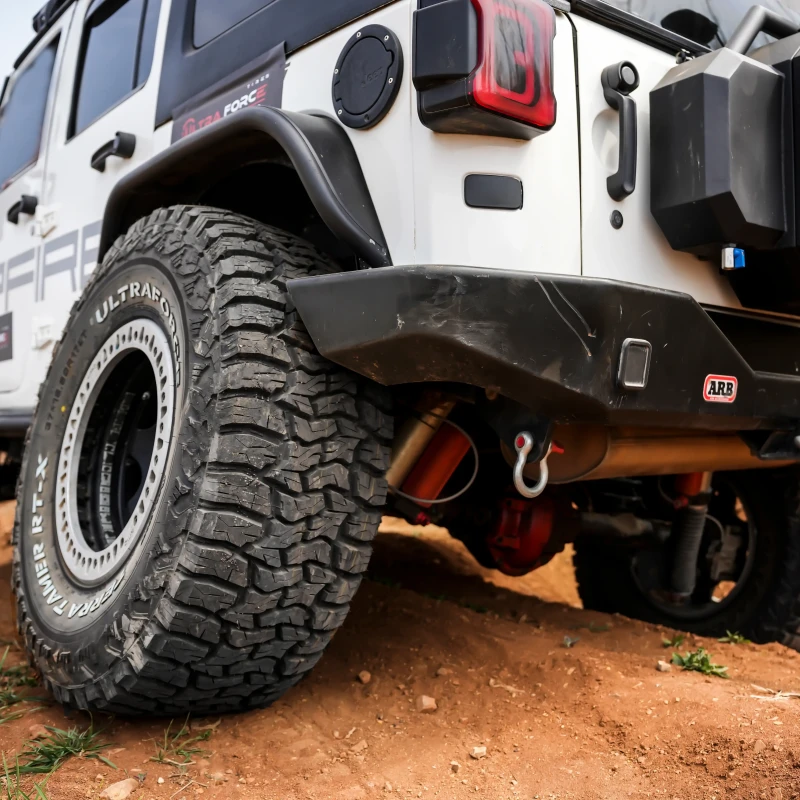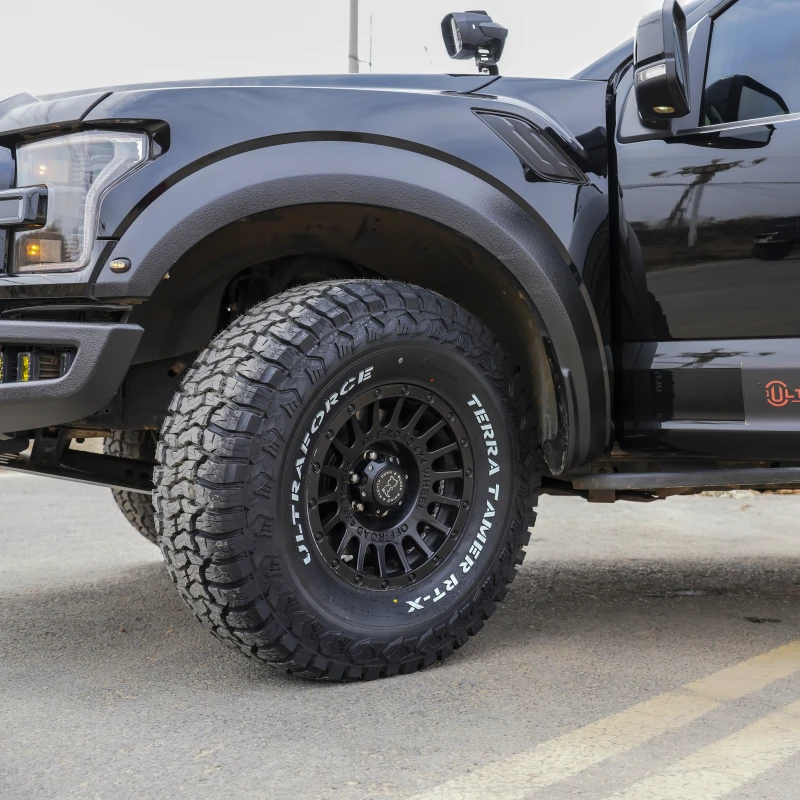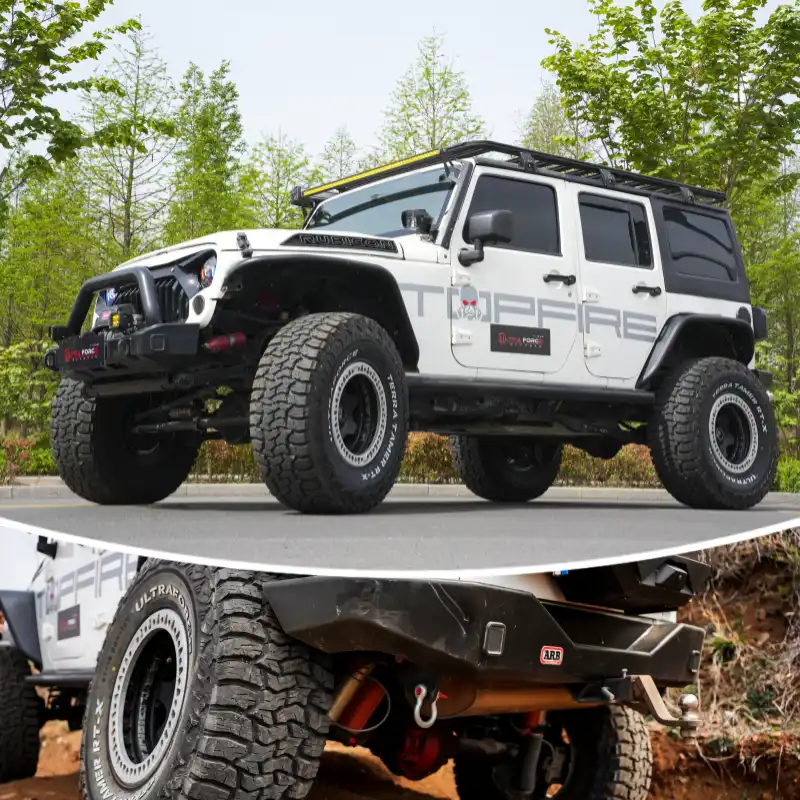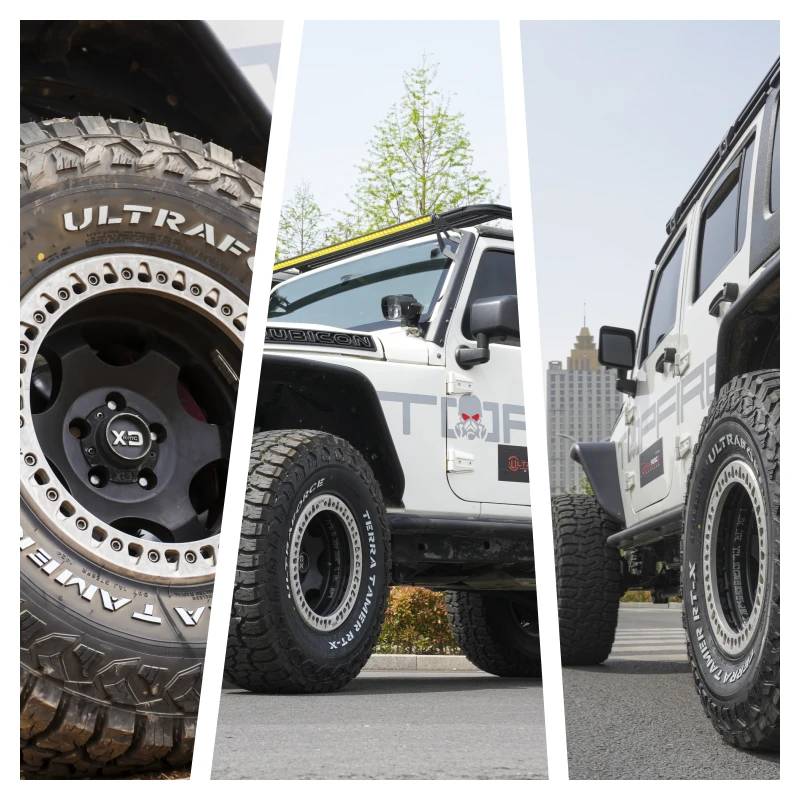When it comes to choosing the right tires for your vehicle, the decision often narrows down to all-season tires and all-terrain tires. While both types are designed to provide versatility, their intended purposes, performance capabilities, and optimal usage conditions differ significantly. This article dives deep into the characteristics of all-season and all-terrain tires, helping you make an informed decision based on your driving needs.
What Are All-Season Tires?
All-season tires are engineered to deliver reliable performance in various weather conditions, including dry, wet, and light snow. They are the default choice for many passenger cars, SUVs, and light trucks due to their balance of performance, durability, and affordability.
Key Features of All-Season Tires:
Tread Design:
Symmetrical or asymmetrical tread patterns optimize road contact for smooth driving.
Tread blocks and grooves are designed to channel water, reducing the risk of hydroplaning.
Rubber Compound:
The rubber is optimized for flexibility in moderate temperatures, ensuring good traction.
Not designed for extreme cold or hot conditions.
Longevity:
All-season tires typically have a longer tread life due to their moderate design focus.
Many models come with warranties ranging from 50,000 to 80,000 miles.
Noise and Comfort:
Quieter and more comfortable ride compared to other tire types.
Best Uses:
Everyday commuting.
Urban and highway driving in regions with mild weather.
Occasional light snow or rain conditions.
229611.webp)
What Are All-Terrain Tires?
All-terrain tires are designed for off-road use while maintaining adequate on-road performance. They cater to adventurers and drivers who frequently encounter rough terrains like gravel, mud, and sand.
Key Features of All-Terrain Tires:
Tread Design:
Aggressive and deeper tread patterns with larger tread blocks for enhanced traction on loose or uneven surfaces.
Tread voids are larger to prevent mud and debris from clogging the tire.
Rubber Compound:
Durable rubber resists cuts, punctures, and wear on rugged terrains.
Optimized for a balance between on-road comfort and off-road capability.
Versatility:
Marked with the M+S (Mud and Snow) rating, and many come with the 3PMSF (Three-Peak Mountain Snowflake) certification, indicating good performance in severe snow conditions.
Durability:
Reinforced sidewalls and stronger construction for withstanding off-road conditions.
Best Uses:
Frequent off-road driving, including trails, mud, sand, and gravel.
Drivers who require a tire that performs well in various terrains and weather conditions.
Adventure and utility vehicles like SUVs, trucks, and 4x4s.
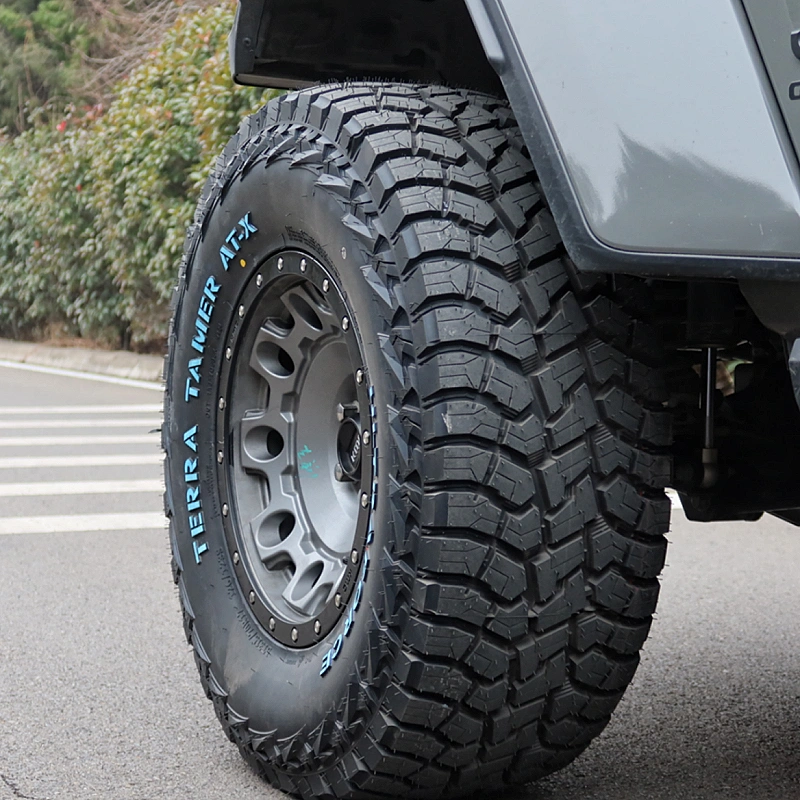
Comparison of All-Season and All-Terrain Tires
| Category | All-Season Tires | All-Terrain Tires |
|---|---|---|
| Purpose | General on-road use in mild weather. | Off-road use with decent on-road performance. |
| Tread Design | Shallow, symmetrical/asymmetrical patterns for comfort. | Deep, aggressive patterns for enhanced off-road traction. |
| Weather Conditions | Dry, wet, and light snow. | Mud, sand, gravel, and moderate snow. |
| Durability | Moderate, designed for paved roads. | High, designed for rugged terrains. |
| Performance | Excellent on highways and urban roads. | Balanced performance for on-road and off-road use. |
| Ride Comfort | Quieter and smoother ride. | Noisier and less smooth on highways. |
| Lifespan | Longer tread life (50,000-80,000 miles). | Shorter tread life (40,000-60,000 miles). |
| Cost | Lower initial cost. | Higher initial cost due to durable construction. |
Key Differences Between All-Season and All-Terrain Tires
Tread Design and Performance
All-season tires focus on road grip and hydroplaning prevention, making them ideal for highways and city roads. In contrast, all-terrain tires feature aggressive tread blocks that dig into loose surfaces, offering superior traction in off-road conditions.Versatility
All-season tires are versatile for varying weather conditions but struggle in extreme environments like deep snow or thick mud. All-terrain tires excel in off-road terrains and are more resilient in harsher conditions.Durability
All-terrain tires are built with reinforced materials to endure rough usage, while all-season tires prioritize longevity on paved roads but may not withstand off-road challenges.Noise and Comfort
All-season tires are quieter and provide a smoother ride, whereas all-terrain tires produce more road noise due to their aggressive tread.Cost
All-terrain tires are generally more expensive because of their specialized design and materials. However, their performance in rugged conditions justifies the investment for off-road enthusiasts.
Which One Should You Choose?
Choose All-Season Tires If:
You primarily drive on paved roads.
You live in an area with mild weather and minimal snow.
You prioritize comfort, low noise, and cost-effectiveness.
Your vehicle is a sedan, small SUV, or minivan.
Choose All-Terrain Tires If:
You frequently drive off-road or on uneven surfaces.
You need a tire that can handle mud, gravel, and sand.
You live in a region with harsher weather or snow.
Your vehicle is a truck, large SUV, or 4x4.
Cost Comparison
| Tire Type | Price Range (Per Tire) |
|---|---|
| All-Season Tires | $70 - $200 |
| All-Terrain Tires | $150 - $350 |
All-terrain tires are costlier due to their durability and specialized construction. However, if you drive off-road often, the investment is worthwhile as it reduces the risk of tire damage and improves safety.
Pros and Cons Summary
All-Season Tires
Pros:
Affordable and widely available.
Long-lasting tread life.
Quiet and comfortable ride.
Cons:
Limited capability in deep snow or rugged terrains.
Not suitable for extreme weather conditions.
All-Terrain Tires
Pros:
Superior traction on off-road surfaces.
Durable construction for rugged conditions.
Versatile performance in mud, sand, and snow.
Cons:
Noisier and less comfortable on highways.
Shorter lifespan and higher cost compared to all-season tires.
Conclusion
The choice between all-season and all-terrain tires ultimately depends on your driving habits, vehicle type, and the environments you frequently encounter. For everyday commuting and highway use, all-season tires offer a perfect balance of performance and affordability. On the other hand, if you venture off-road or live in areas with challenging terrains, all-terrain tires provide the durability and traction needed to tackle such conditions.
Investing in the right tire type ensures not only optimal performance but also safety and efficiency in your driving experience. Choose wisely based on your specific needs and enjoy a smoother ride or a thrilling off-road adventure!
